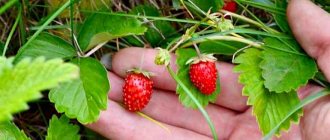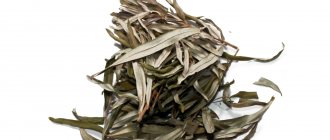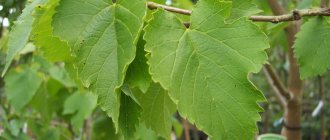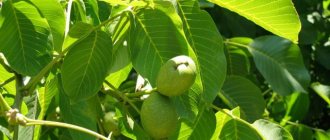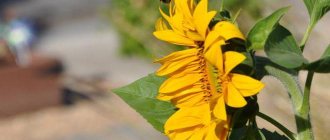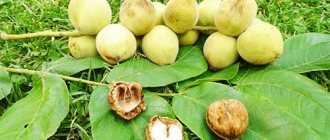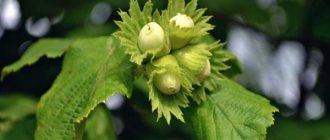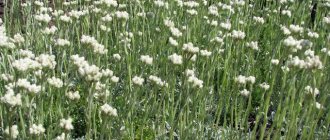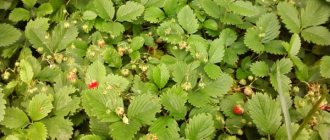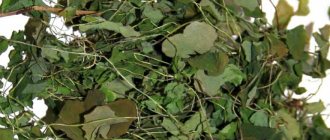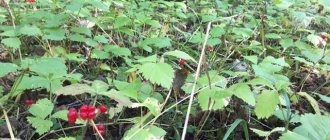Beneficial properties of raspberry leaves
Raspberries are a perennial shrub that grows everywhere in almost every gardener's garden. But in most cases, they grow it and only pick the berries. Of course, raspberries are very healthy and tasty, containing many nutrients. but we must not forget about raspberry leaves.
Raspberry leaves are one of the safest and most effective treatments for colds and flu and can be used to treat children, pregnant and lactating women, as well as to strengthen the immune system in people weakened by the disease.
In addition to common colds, raspberry leaves are used to treat more serious diseases, ranging from gynecological to poisoning.
Composition of raspberry leaves
The beneficial properties of raspberry leaves are explained by their chemical composition. They contain a large amount of vitamin C. In addition to vitamin C, they also contain vitamin E and vitamin K.
Raspberry leaves, as well as raspberries, are rich in folic acid, organic acids, tannins and astringents.
When treating diabetes mellitus, the properties of this plant have a positive effect on the patient’s condition.
They contain macro and micro elements important for the body: potassium, magnesium, sodium, iodine, manganese, copper, calcium, iron, phosphorus.
Flavonoids, sugars, resins, mucus, mineral salts are all also present in the leaves. Of particular note is the unique substance salicylate, which is similar in properties to salicylic acid.
The medicinal properties of the leaves are recognized by traditional medicine. With their help you can reduce the temperature, they increase sweating. They are able to cleanse the body of toxins, reduce nausea and other unpleasant symptoms of poisoning, stop bleeding and strengthen the immune system as a whole.
Important: Raspberry leaves contain a large number of different beneficial substances:
- vitamins C, E, K;
- Sahara;
- mucus;
- resins;
- folic acid;
- iodine;
- magnesium;
- mineral salts;
- flavonoids;
- cellulose;
- manganese;
- salicylate;
- calcium;
- potassium;
- sodium;
- phosphorus;
- tannins;
- binders;
- organic fruit acids;
- phytoncides.
Due to the high content of vitamin C and salicylate, raspberry leaves can be used to treat respiratory and viral diseases, influenza, SARS and other diseases of the upper respiratory tract.
Raspberry leaves can also be used to gargle and rinse the mouth.
Raspberry leaves contain tannins and antioxidants, which allow them to be used as an anti-inflammatory and anti-aging agent. Decoctions and infusions of leaves perfectly cleanse the skin, making it more elastic and firm.
Our grandmothers knew very well that the juice of the leaves tones the skin, smooths out wrinkles and improves complexion.
Flavonoids have hemostatic properties. A decoction of the leaves is drunk for hemorrhoids, uterine, gastric and intestinal bleeding to minimize blood loss due to these diseases.
Raspberry leaves are also useful for gynecological inflammatory diseases. They are used to prepare infusions for douching and medicinal baths to reduce inflammation, itching and alleviate the unpleasant symptoms of the disease.
The table shows the nutritional content (calories, proteins, fats, carbohydrates, vitamins and minerals) per 100 g of edible portion.
| Nutrient | Quantity | Norm** | % of the norm in 100 g | % of the norm in 100 kcal | 100% normal |
| Calorie content | 46 kcal | 1684 kcal | 2.7% | 5.9% | 1704 g |
| Squirrels | 0.8 g | 76 g | 1.1% | 2.4% | 73 g |
| Fats | 0.5 g | 60 g | 0.8% | 1.7% | 63 g |
| Carbohydrates | 8.3 g | 211 g | 3.9% | 8.5% | 213 g |
| Organic acids | 1.5 g | ~ | |||
| Alimentary fiber | 3.7 g | 20 g | 18.5% | 40.2% | 20 g |
| Water | 84.7 g | 2400 g | 3.5% | 7.6% | 2420 g |
| Ash | 0.5 g | ~ | |||
| Vitamins | |||||
| Vitamin A, RE | 33 mcg | 900 mcg | 3.7% | 8% | 892 g |
| beta carotene | 0.2 mg | 5 mg | 4% | 8.7% | 5 g |
| Vitamin B1, thiamine | 0.02 mg | 1.5 mg | 1.3% | 2.8% | 2 g |
| Vitamin B2, riboflavin | 0.05 mg | 1.8 mg | 2.8% | 6.1% | 2 g |
| Vitamin B5, pantothenic | 0.2 mg | 5 mg | 4% | 8.7% | 5 g |
| Vitamin B6, pyridoxine | 0.07 mg | 2 mg | 3.5% | 7.6% | 2 g |
| Vitamin B9, folates | 6 mcg | 400 mcg | 1.5% | 3.3% | 400 g |
| Vitamin C, ascorbic acid | 25 mg | 90 mg | 27.8% | 60.4% | 90 g |
| Vitamin E, alpha tocopherol, TE | 0.6 mg | 15 mg | 4% | 8.7% | 15 g |
| Vitamin H, biotin | 1.9 mcg | 50 mcg | 3.8% | 8.3% | 50 g |
| Vitamin RR, NE | 0.7 mg | 20 mg | 3.5% | 7.6% | 20 g |
| Niacin | 0.6 mg | ~ | |||
| Macronutrients | |||||
| Potassium, K | 224 mg | 2500 mg | 9% | 19.6% | 2489 g |
| Calcium, Ca | 40 mg | 1000 mg | 4% | 8.7% | 1000 g |
| Magnesium, Mg | 22 mg | 400 mg | 5.5% | 12% | 400 g |
| Sodium, Na | 10 mg | 1300 mg | 0.8% | 1.7% | 1250 g |
| Sera, S | 16 mg | 1000 mg | 1.6% | 3.5% | 1000 g |
| Phosphorus, Ph | 37 mg | 800 mg | 4.6% | 10% | 804 g |
| Chlorine, Cl | 21 mg | 2300 mg | 0.9% | 2% | 2333 g |
| Microelements | |||||
| Bor, B | 200 mcg | ~ | |||
| Iron, Fe | 1.2 mg | 18 mg | 6.7% | 14.6% | 18 g |
| Cobalt, Co | 2 mcg | 10 mcg | 20% | 43.5% | 10 g |
| Manganese, Mn | 0.21 mg | 2 mg | 10.5% | 22.8% | 2 g |
| Copper, Cu | 170 mcg | 1000 mcg | 17% | 37% | 1000 g |
| Molybdenum, Mo | 15 mcg | 70 mcg | 21.4% | 46.5% | 70 g |
| Fluorine, F | 3 mcg | 4000 mcg | 0.1% | 0.2% | 3000 g |
| Zinc, Zn | 0.2 mg | 12 mg | 1.7% | 3.7% | 12 g |
| Digestible carbohydrates | |||||
| Mono- and disaccharides (sugars) | 8.3 g | max 100 g | |||
| Glucose (dextrose) | 3.9 g | ~ | |||
| Sucrose | 0.5 g | ~ | |||
| Fructose | 3.9 g | ~ | |||
| Saturated fatty acids | |||||
| Saturated fatty acids | 0.1 g | max 18.7 g |
Raspberry leaves are an excellent vitamin product for vitamin tea. They will not only saturate the body with vitamins and minerals, strengthen the immune system and improve overall health. They will also cleanse the body of unnecessary and dangerous toxins.
Medicinal properties of raspberry leaves
Raspberry leaves have the following medicinal properties:
- Anti-inflammatory;
- Antipyretic;
- Expectorants;
- Sweatshops;
- Knitting;
- Antitoxic;
- Hemostatic.
In folk medicine, raspberry leaves are most often used to treat:
- Colds, flu, ARVI;
- Diseases accompanied by bleeding: hemorrhoids, ulcers, colitis, rectal and gynecological bleeding;
- Inflammatory diseases of the gastrointestinal tract;
- Stomatitis, gingivitis and other oral diseases;
- Gynecological diseases;
- Skin diseases, in particular acne.
Raspberry leaves are also used to strengthen the immune system and improve the overall health of the entire body.
Fresh mashed raspberry leaves are applied to bruises, hemorrhoidal cones, and wounds that do not heal for a long time. Can raspberry leaf juice for insect bites.
Raspberry leaves are used for medicinal purposes in fresh and dried form. Decoctions, infusions, and tinctures are prepared from them.
Decoctions and infusions of leaves are used internally for many diseases. They are used to gargle and use for douching and baths, treat the skin and wash the eyes with the conjunctiva.
Tincture of leaves can be used for insect and snake bites. It relieves swelling, inflammation, itching.
A decoction of the leaves can be used to rinse hair to accelerate growth and strengthen the structure.
Raspberry leaves for women
Raspberry leaves are very beneficial for women. They can help cope with many inflammatory gynecological diseases. In addition, they have long been used for infertility.
It is recommended to use decoctions of the leaves during pregnancy to ease labor pains, increase the tone of the uterus and the elasticity of the walls, which helps avoid large tears during childbirth.
For example, in Germany, during courses women are recommended to drink a decoction of raspberry leaves. And in England, there has long been a custom to start drinking lukewarm tea with raspberry leaves two months before giving birth.
There is even a certain pattern for drinking this tea. Starting from 35-36 weeks of pregnancy, drink one cup of tea.
At week 37, already two glasses a day. At 38 weeks - 3 glasses.
From the 39th week, drink 4 glasses and a little hotter. And in the last, 40th week before giving birth - 4 glasses of hot raspberry leaf tea.
Do not rush to use this scheme without consulting your gynecologist.
Rules for selecting and storing raspberry leaf tea
When buying raspberry leaves at a pharmacy (it’s generally better not to do this in a store), you should pay attention to the following points:
- Product collection location. If the packaging does not indicate that the product is made from shrubs growing in an ecologically clean area, it is better to look for other raw materials.
- The shelf life of ready-made collections cannot exceed 2 years. You should find the date of collection and packaging of the leaves.
- You should not buy a composition that is designated as “tea”. This implies the presence of additional ingredients or primary processing of raw materials. The benefits of such products will be minimal.
Ready raspberry tea can be stored for no more than a day. For this purpose, glass or ceramic containers and thermoses are used. It is generally better not to keep drinks in plastic or metal. If the liquid has lost its taste and aroma, it is better not to drink it. It is no longer capable of therapeutic effects, but can cause digestive upset.
Contraindications to the use of raspberry leaves
Although raspberry leaves are safe and can be used for many diseases, there are, however, some contraindications.
Raspberry leaves should not be used at the beginning of pregnancy, although traditional medicine recommends them for the treatment of infertility. They increase the tone of the uterus and in the early stages of pregnancy this can lead to miscarriage.
You should not take medications with raspberry leaves if:
- Chronic constipation;
- Gout;
- Jade;
- Asthma;
- Nasal polyps;
- Individual intolerance.
How to brew raspberry leaves. Cooking methods
Basically, raspberry leaves are used in the form of a decoction based on fresh or dry leaves or simply added to tea.
Raspberry leaf infusion
- A tablespoon of dry leaves is brewed with two glasses of boiling water.
- Cover with a napkin and leave for 20 minutes.
- After cooling, strain.
Raspberry leaf decoction
Pour a tablespoon of crushed leaf into 300 ml of water. Boil for 10 minutes and then let stand until completely cool.
To raspberry leaves you can add sage, St. John's wort, birch and lingonberry leaves in equal volumes.
Tea with raspberry leaves
Add 1-2 tablespoons of raspberry leaves to the brew.
Brew 0.6 liters of boiled water
Let it brew for 16-20 minutes.
Alternative medicine recipes
Folk herbalists from generation to generation pass on methods for making various remedies from raspberries. To cope with skin problems, not only pimples and acne, but also such serious diseases as psoriasis and eczema, people came up with the idea of making an ointment based on raspberry leaves. To do this, you need to take fresh foliage, wash it well, dry it, grind it and squeeze it. Next, add Vaseline or butter to the resulting juice in a ratio of 1:4, mix everything thoroughly until a homogeneous mass is formed. Problem areas are periodically lubricated with this product, and the skin gradually cleanses. The ointment is also good because it has no contraindications.
This drink works great against flu viruses.
However, infusions, decoctions and teas are most often made from raspberries. Take 2 tbsp. l. leaves (you can add twigs), pour into a thermos, pour a glass of boiling water, close tightly and leave for 30 minutes to 2 hours. Strain the product and use every 3 hours as a diaphoretic and antipyretic, 3 or 4 times a day for skin rashes, cough and colitis, enteritis, gastritis, painful menstruation. But for hemorrhoids, douching and lotions are indicated. The tincture is made with alcohol - it will be an excellent substitute for expensive mosquito and midge repellents.
Raspberry leaf decoction
To prepare a decoction of raspberry leaves, pour 6 tablespoons of crushed dry raspberry leaves into 1 liter of boiled hot water and leave for 2-3 hours. Then strain the broth.
This decoction is used to treat colds and diseases of the gastrointestinal tract. Take the decoction 3-4 times a day before meals, half a glass warm.
When treating colds, it is useful to combine oral decoction with gargling.
The decoction can also be used to wash the eyes for conjunctivitis, for diseases of the oral cavity, for hemorrhoids, and for inflammatory gynecological diseases in the form of douching and baths.
Raspberry leaf tincture
To prepare a tincture of raspberry leaves, you need to pour 5 tablespoons of dry raspberry leaves into 100 ml of 40 proof vodka. Leave to infuse for 2-3 weeks, shaking the container periodically. Then strain the tincture.
The tincture is taken orally, 1 teaspoon at a time, to strengthen the immune system and improve the health of the body as a whole. Alcohol tincture can be used to lubricate insect bites to reduce itching and swelling at the site of the bite.
Raspberry leaf ointment
The ointment is made from fresh raspberry leaves. To do this, the leaves are thoroughly ground, the juice is squeezed out and mixed with pharmaceutical petroleum jelly or oil in a ratio of 1:2.
This ointment can be used to treat skin diseases, acne, pimples and other diseases.
Raspberry leaf tea
Prescribed to improve the functioning of the cardiovascular system, as a hemostatic agent, as an immunostimulant, as well as for diarrhea and disorders of the stomach and intestines. This tea is effective for relieving joint pain and inflammation.
There is a good result in the fight against diseases of the reproductive system. In order to brew this tea, you need to take 1 tablespoon of dry leaves and pour 300 g of boiling water. Then the drink should be allowed to brew for 10-15 minutes.
Raspberry leaf infusion
The infusion is used to gargle for sore throat and for compresses for conjunctivitis. For baths and douching for various female diseases. The drink is used internally for rashes and many skin diseases, even such as psoriasis.
For gargling with sore throat, infusions of laurel, fieldfare, propolis, goldenrod, and calendula are also used.
To prepare the infusion, grind 10 g of dry raspberry leaves and add 200 ml of water. The mixture should sit for 30-40 minutes. Then it is filtered and taken depending on the diagnosis.
Did you know? Based on raspberry leaves, you can make an amazing liqueur, which, when used wisely, is incredibly healthy. To do this, take 200 fresh leaves and 50 raspberries, 1.5 kg of sugar, 1 teaspoon of citric acid and 1 liter of vodka.
Treatment with raspberry leaves
How to properly brew raspberry leaves to boost immunity
Increasing immunity is an issue that worries everyone. Raspberry tea (leaves) can cope with this task very easily, because it contains that precious vitamin C, which helps our body resist colds.
For this purpose, tea from raspberry leaves is prepared according to several recipes.
1. 3 servings of green tea, 2 servings of raspberries, 1 serving of blackberries, 5 g of raspberry and currant leaves. To begin with, dry ingredients (bush leaves and tea) are brewed in 1 glass of boiling water. Leave for no more than 5 minutes. Next, add another 250 ml of boiling water and berries and leave for about 3 minutes. The infusion is drained and decanted. To strengthen immune forces, drink 200 ml 3 times a day.
2. For the next drink, ingredients such as leaves of three bushes (raspberries, blackberries, black currants) are used in equal quantities. The finished mixture is poured with boiling water and put on fire for about 10 minutes. Then leave for no more than 2 hours and decant. This tea improves blood circulation and metabolic processes in the body, restoring the functioning of its systems.
3. Another recipe for strengthening the immune system. It is especially useful during periods of increased colds. Prepare a drink daily from equal parts of raspberries (leaves), rose hips and rowan. It is taken twice a day in small portions on an empty stomach.
To reduce temperature
Mix dry raspberry leaves and twigs in equal quantities. Grind. Take 2 tablespoons and pour a glass of boiling water into a thermos. Leave for 2 hours. Take half a glass of infusion every three hours.
This infusion can be taken for gastritis, enteritis, and to improve lactation for breastfeeding women.
Gastric, uterine bleeding
Pour 3 tablespoons of crushed dry raspberry leaves into a glass of boiling water. Leave for 15 minutes and take half a glass 4 times during the day.
For bronchitis
For bronchitis, it is good to prepare a mixture of dried raspberry, oregano and coltsfoot leaves. Herbs are taken in equal proportions. Pour one tablespoon of the mixture into a glass of boiling water. Infuse and take hot. It's good to add honey.
For renal colic
For this disease, prepare a mixture of 20 grams of dried raspberry leaves, 100 grams of birch leaves, 10 grams of mantle and 10 grams of marsh grass.
Chop the herbs and add 5 liters of hot water. Let it brew for 1 hour. Take a bath with this decoction. Water temperature 35-38 degrees.
For inflammation of the genital organs and thrush
Pour 3 tablespoons of dried raspberry leaves into a glass of boiling water. Place in a water bath for 10 minutes. Strain and use for douching.
In case of ovarian dysfunction
Pour 3 tablespoons of dry raspberry leaves and 1 tablespoon of currant leaves into 0.5 liters of boiling water. Leave for 15 minutes. Take half a glass 3 times a day.
For heavy periods
The collection is being prepared. Take equal quantities of raspberry leaf, wild strawberry, yarrow herb, oak bark and cinquefoil. Pour 1 tablespoon of the crushed collection with a glass of boiling water and leave for 5-6 hours, wrapping it well.
Then put on the fire and simmer, covered, over low heat for another 15 minutes. Cool and strain. Take warm, 1 glass per day for a week.
In the treatment of infertility
A mixture is prepared from raspberry leaves and red clover in equal quantities. Pour 1 teaspoon of the mixture into a glass of boiling water and leave for 10 minutes. Drink the decoction as tea, 1 cup every day. The course of treatment is 3-4 months. Then take a break for 2 weeks and repeat the treatment.
Raspberry leaf decoction during pregnancy
It is believed that a drink made from raspberry leaves prepares the uterus for childbirth. But the result depends on the condition of the drink and the number of cups drunk per day. Cooled and warm decoction increases elasticity, softening the cervix. This allows it to open more easily during childbirth and avoid ruptures. Hot tea stimulates labor. If a pregnant woman inadvertently starts drinking a hot decoction right away, she will end up in the delivery room with an undilated cervix, but with strong contractions, which can adversely affect the progress of labor. You should not drink raspberry leaf tea before 35 weeks. The drink is taken according to the following scheme:
- 35 weeks – a glass of chilled tea per day;
- 36 weeks – a glass of slightly warm tea per day;
- 37 weeks – 2 glasses of warm drink per day;
- 38 weeks – 3 glasses of warm drink per day;
- 39 weeks – 4 glasses of hot tea per day;
- 40 weeks – 4 glasses of hot drink per day.
To prepare the drink, place an incomplete tablespoon of finely chopped (or dried) raspberry leaves in a thermos, pour a glass of boiling water, leave for 30 minutes, filter and cool.
In Germany, during childbirth preparation courses, pregnant women are recommended to drink a decoction of raspberry leaves (a cup a day). In England, there is a folk tradition of drinking tea 2 months before giving birth to increase tissue elasticity and facilitate childbirth.
For the treatment of herpes
Make a paste from fresh raspberry leaves and young twigs. Apply the paste to the sore spot several times a day.
Features of application
In folk medicine
Due to its prevalence and accessibility, a decoction based on almost all parts of raspberries has become widespread in folk medicine.
Despite the variety of diseases and harmful symptoms for which raspberry decoction helps, most often treatment and prevention consists of making tinctures of varying degrees of concentration and using them internally or as a lotion or douse.
But still, the methods and dosages differ somewhat, depending on the desired effect.
To reduce temperature
Raspberry leaves have a high content of acetylsalicylic acid and vitamin C, which causes active sweating in the human body, which in turn helps lower the body temperature and remove harmful toxins and waste from it.
Of course, we should not forget that the broth should be warm, not hot. A science such as physics will not allow reducing the temperature using a hotter liquid.
Gastric, uterine bleeding
For bleeding of the gastrointestinal tract, it is allowed to use a decoction of raspberry leaves as an additional means of combating the disease. This reduces inflammation, reduces pain and destroys sites of infection.
Important! Of course, this should be done only after preliminary consultation with a specialist, since in this case self-medication can only provoke an exacerbation.
For bronchitis
In case of bronchitis, it is recommended to drink a drink based on raspberry leaves, just moderately hot. 1 tbsp. A spoonful of dry mixture per glass of boiling water is enough for effective action.
The expectorant and softening effect of essential oils will help a sore throat and the entire respiratory tract. The optimal duration of the procedure is about a month. To enhance it, you can mix it with other medicinal plants - ginger, aloe, etc.
For renal colic
A proven method for soothing the pain of renal colic is a warm bath with a mixture of raspberry leaves (20g), birch shoots (10g), cudweed grass (10g) and mantle leaves (10g). It is best to lie down so that your lower back is completely hidden under water and lie quietly for about 15-20 minutes.
For inflammation of the genital organs and thrush
For inflammation of the genital organs, both external and internal, an infusion of raspberry leaves is used. 3-4 spoons per glass of water and this tincture can be used to wipe and rinse problem areas.
Tannins and natural antiseptics help relieve inflammation, lower fever and reduce pain. But even in this case, you cannot postpone a visit to the doctor.
In case of ovarian dysfunction
Women who suffer from dysfunction of the ovary should also not ignore healing tinctures from raspberry leaves. Regular use of a decoction based on a dry mixture of leaves will help improve the condition of internal organs and restore lost functions.
Attention! All this must be done under the supervision of specialists and in combination with drug treatment.
For heavy periods
If you have heavy periods, you can use raspberry decoction as tea in order to stabilize both the general hormonal levels of the body and improve blood circulation directly in the genitourinary system.
Additionally, you can treat the internal genital organs using douching to get rid of possible foci of infection and, if necessary, relieve inflammation.
Fact! The tannin contained in raspberries has a good hemostatic effect.
In the treatment of infertility
Infertility is quite a serious problem and one cannot expect that applying raspberry bush leaves can cure it. Physical causes will not be eliminated, but dry raspberry tea contains iron, which provides better blood supply to internal organs, including the uterus with the egg.
Male cells also begin to show greater activity under the influence of enzymes from the decoction. Fact! Omega 3 fatty acids are the basic material for the germ cells of the human body, both male and female.
Raspberry leaf decoction during pregnancy
Attention! In the early stages of pregnancy, it is contraindicated to consume not only an infusion of dry raspberry mixture, but also fresh berries.
Natural aspirin and salicylic acid, contained in large quantities in these products, can negatively affect the development of the fetus, the formation of organs and the skeleton.
In addition, like all red berries or fruits, raspberries can be quite a strong allergen. In addition, by causing contractions of the uterus, substances included in the chemical composition of raspberries can cause miscarriage.
Of course, this is true if you overindulge in the amount you eat. A few berries will not harm the expectant mother. At later stages, starting from the 35th week, with prior consultation with a doctor, raspberry decoction can be included in the regular menu of the woman in labor.
Providing the uterus and birth canal with fresh blood rich in iron will help with childbirth. Unpleasant symptoms, such as swelling and constipation, can also be eliminated by drinking tea from this wonderful plant. An infusion of leaves is especially good at combating nausea that often occurs in pregnant women.
For the treatment of herpes
The occurrence of such an unpleasant phenomenon as herpes can be mitigated with the help of a dry mixture of leaves, twigs and raspberry fruits. You need to pour boiling water over it all, let it brew for a couple of hours and take it both internally and smear it on skin rashes.
Tannins and antiseptics help the body fight infection, which leads to a speedy recovery.
In cooking
But you shouldn’t think that all the raspberries grown are spent on fighting diseases and making life easier for pregnant women. The gastronomic qualities of this berry are as wonderful as their medicinal properties. For the most part, it is the fruit that is used.
Pies, jam and wine products containing raspberries will satisfy the taste of both the sweet tooth and the gourmet winemaker and lover of healthy and tasty food. But the leaves of this plant are also used in cooking:
- First of all, a variety of teas - both separately and in combination with other components - black currant leaves, cherry or St. John's wort. The tea turns out aromatic, rich and tasty. But due to its sweating and diuretic properties, it is still not worth abusing it. Ketones from raspberry leaves will be useful for those who watch their figure, although mainly due to the removal of fluid from the body.
- raspberry leaves as a seasoning for side dishes, especially rice. This is a fairly rare use, but it is also known to some gourmets.
In home cosmetology
Anyone who saw a ripe raspberry fruit up close noticed how elastic and fresh the surface of each ball was. This may be why after washing with water and a decoction of dry leaves, the skin becomes smooth, fresh and springy.
In addition, a rejuvenating effect is achieved. Creams and ointments are made based on raspberry infusion, which have an antiseptic and hemostatic effect.
Use of raspberry leaves in cooking
In general, raspberry leaves are not a widely used ingredient in food ; as a rule, the berries are still taken. Most of all, the leaves are used for various teas , for example, vitamin, fermented, herbal, and they are also sometimes used in the preparation of liqueurs , for example, raspberry leaves are used in the process of preparing currant liqueur. Also, recently, recipes for cooking rice with raspberry leaves have appeared; unfortunately, such dishes are not very common, so a very small number of housewives prepare them.
Raspberry leaves have gained great popularity in dietetics - they have a pronounced diaphoretic and diuretic effect and, thanks to these qualities, they are often used as part of various weight loss preparations . Plus, they supposedly contain raspberry ketones - a new mega-popular weight loss product that should help burn excess calories - in reality, raspberry leaves contain a minimal amount of ketones, so their entire weight loss effect is determined solely by the removal of excess fluid from the body.
Since raspberry leaves are practically not used for cooking, it is quite difficult to say what dishes they would go well with. Definitely, raspberry leaves can be used as a decoration for ice cream and various desserts; they add exoticism to the dish and bring new, unusual notes to its taste.
